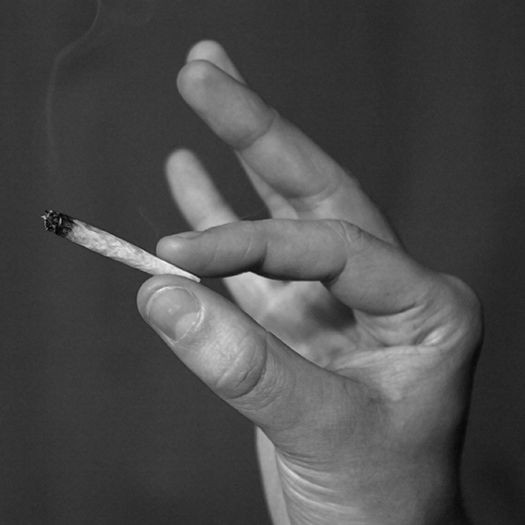Most Adults Who Support Marijuana Legalization Oppose Use In Public, Use By Kids And Teens

A new survey released today by The Partnership at Drugfree.org suggests that parents who support legalization of marijuana expect certain regulations to be enforced, including age limits and bans on smoking in public.
While 40 percent of adults say they are in favor of legalizing marijuana for recreational purposes, a majority of them oppose any form of legal marijuana for use among kids and teens. The online survey also found that the risks of marijuana, despite relaxing attitudes toward the drug, remain a concern to parents and caregivers. Because of these health risks, most believe that, like alcohol, cannabis should only be legal for adults over the age of 21.
Methods And Results
Conducted as a collaboration between Partnership at Drugfree.org and a subsidiary of the advertising agency BBDO Worldwide, the survey fielded online responses from 1,603 adults, of whom 1,200 were parents of children ages 10-19. Of the 1,200 participating parents, 200 reside in Colorado and 200 in Washington State, the two states where marijuana for recreational use was legalized last year. An independent researcher, Whitman Insight Strategies, helped to field answers to the survey in early March of 2013.
"With marijuana now legal for recreational use in Colorado and Washington State, for medical use in 18 states and the District of Columbia, and effectively decriminalized in 14 states, it's clear that society's approach to marijuana is changing dramatically," began the authors of the report.
The Partnership sought to learn more about parents' attitudes regarding:
- marijuana use and the risks it may or may not pose to adolescents
- medicalization, decriminalization, and legalization
- regulation of marijuana use, if made legal, so as to protect young people.
The organization acknowledges the context of their survey: 90 percent of addictions begin in adolescence and because of this, parents and families need tools "to help protect kids from the dangers of substance abuse, especially during the vulnerable teenage years."
According to the National Survey of American Attitudes on Substance Abuse XVII: Teens, conducted by The National Center on Addiction and Substance Abuse, nearly nine out of 10 (86 percent) of American high-school students say that some classmates are drugging, drinking, and smoking during the school day,
Parents Who Smoke
Less than half (43 percent) of parents in the survey report having used marijuana before; that number is almost 10 points higher for parents living in Washington (52 percent) and nearly 20 points higher for those living in Colorado (62 percent).
Support within the general population of adults for medicalization, decriminalization, and legalization of marijuana is approximately 70 percent, 50 percent, and 40 percent, respectively, and only slightly lower among parents when looking at their combined scores. Oddly, 72 percent of 'Moms' — two percentage points higher than in the general population — supported medical marijuana initiatives. Support for each of the scenarios apparently increased by anywhere from three to 11 percentage points when respondents were given specific definitions for medicalization, decriminalization, and legalization of marijuana. The definitions provided were as follows:
- Medicinal marijuana refers to marijuana being made available through licensed medical centers only to individuals who have a doctor's recommendation to possess and use marijuana for a medical condition.
- Decriminalization of marijuana refers to changing laws so that those caught with marijuana would receive a warning or fine (much like a speeding ticket), but would not face jail time.
- Legalization of marijuana refers to changing laws so that anyone over a certain age would be permitted to possess, buy, sell, and use marijuana for recreational purposes within the limits of the law (much like alcohol).
Potential Harm
In Colorado, 85 percent of parents agreed that marijuana can have strong negative consequences on the still-developing brains of teenagers, and 85 percent agree that marijuana use at a young age can hurt performance in school and impact a young person's future. A majority of parents also believe that it should be illegal to provide marijuana to underage children at home (90 percent of Colorado parents, 91 percent of Washington State parents). And fully, 90 percent of parents in both Colorado and Washington believe that "marijuana should be sold only through licensed growers/sellers and not in places like convenience stores, grocery stores or newsstands."
Over 60 percent of Colorado and Washington State parents feel that they are the most effective source in providing accurate and useful information about marijuana to help their children make informed and positive choices, compared with 16 percent (in each state) saying that schools are most effective.
In terms of gathering information, over 60 percent of Colorado and Washington State parents consider doctors and medical professionals the best sources of advice. Meanwhile, the Internet (48 percent of parents in Colorado, 47 percent in Washington), television ads (39 percent of parents in Colorado, 33 percent in Washington State), and law enforcement (32 percent of parents in Colorado, 38 percent in Washington State) are deemed less worthy sources of information.
Source: Marijuana: It's Legal, Now What? A Dialogue About America's Changing Attitudes, Laws and What This Means for Families. The Partnership at Drugfree.org Publications. 2013.



























